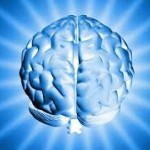
Ethical And Legal Questions Over Brain Revival
Ethical, legal and philosophical questions are being asked after scientists sucessfully restarted the brains of dead pigs. This in turn brings the prospect of bringing individuals back from the dead.
The animals brains formed an experiment that has unexpectedly raised serious questions about what it means to be both alive and dead
Scientists at Yale University injected a cocktail of chemicals into the brains of 32 dead pigs that had been slaughtered in a local abattoir four hours earlier. In some instances the heads had been removed from the bodies.
The animals were referred to as Zombie like, and they didn't regain consciousness, but basic cellular functions, including blood circulation and metabolism, switched back on for 10 hours.
This experiment has seemingly ended the long-held assumptions that brain death was irreversible.
Additionaly it has been suggested that memories can be retrieved from the brains of the dead. It has been claimed that the pigs did not regain consciousness because the mix of chemicals being used served to limit the activity of the cells.
The director of Yale's Interdisciplinary Centre for Bioethics, Stephen Latham, said, "I want to make clear that consciousness was never detected." Additionally Dr Zvonimir Vrselja, prime scientist on the project, added, "Clinically defined, this is not a living brain, but it is a cellularly active brain."
In the UK professor of law and philosophy at Duke University, Nita Farahan, said groups such as the Royal Society, and Nuffield Council on Bioethics needed to set ethical principles for research. Comment was made in the journal Nature, "It opens up possibilities that were previously unthinkable."
"Hundreds of people worldwide have already paid to have their brains frozen and stored, in the hope that scientists will one day be able to revive them. It's easy to imagine misapplications of brain perfusion following the publication of the BrainEx study alone. Another question is what information, if any, could plausibly be retrieved from the brain."
The theory suggests that treatments could be developed to salvage brain function in stroke patients.
Dominic Wilkinson, professor of medical ethics at the University of Oxford, said: "If, in the future, it was possible to restore the function of the brain after death, to bring back someone's mind and personality, that would, of course, have important implications for our definitions of death."
Interestingly the science will then open up the legal aspects of ownership, post mortem.
It is difficult to round off a news story like this with anything approaching a reference what is currently defined as normality. However should you require legal support in anyway please do not hesitate to contact our team.
Richardson Law
Solicitors in Wilmslow
01625 522 429
Get in touch
with your query or requirements
Wilmslow Solicitors
Capable, Knowledgeable, Experienced, Quick Conveyancing and Wills & Probate Solicitors.
We've built our reputation on a solid track record of success and customer satisfaction in the South Manchester and Wilmslow areas.
Call, email or complete the Enquiry form today !







